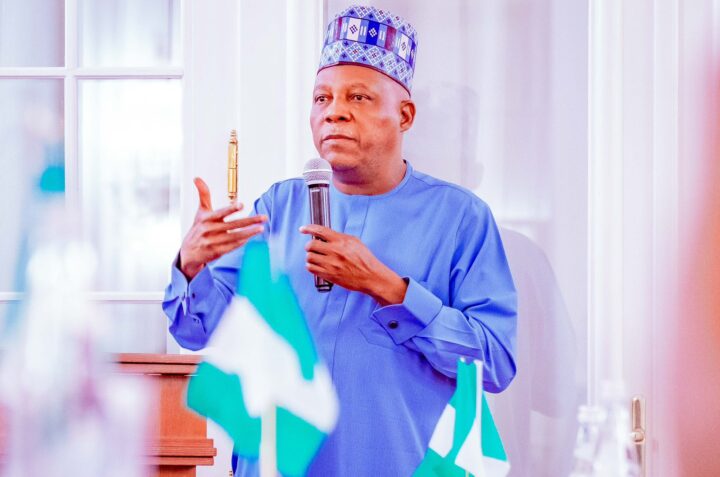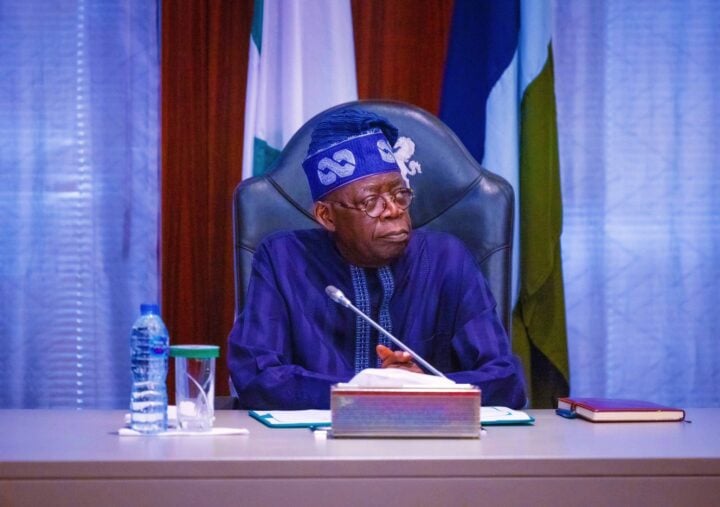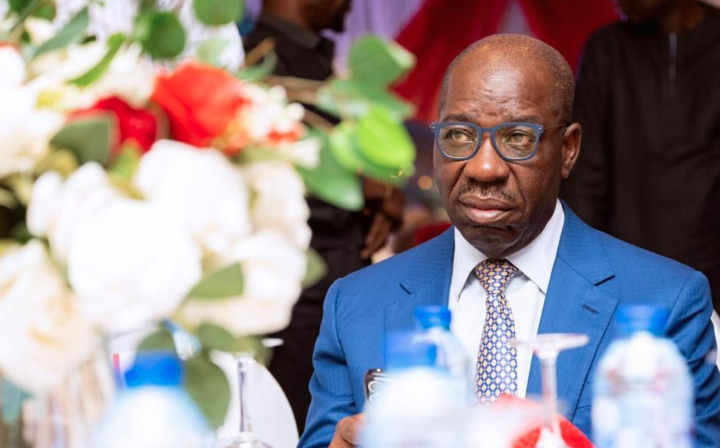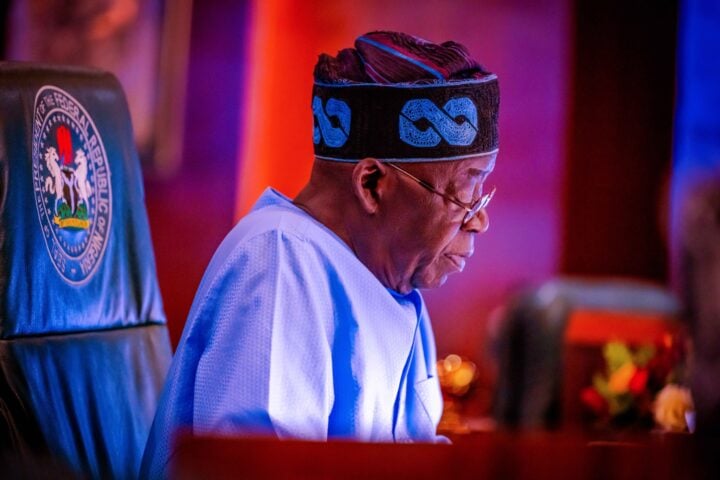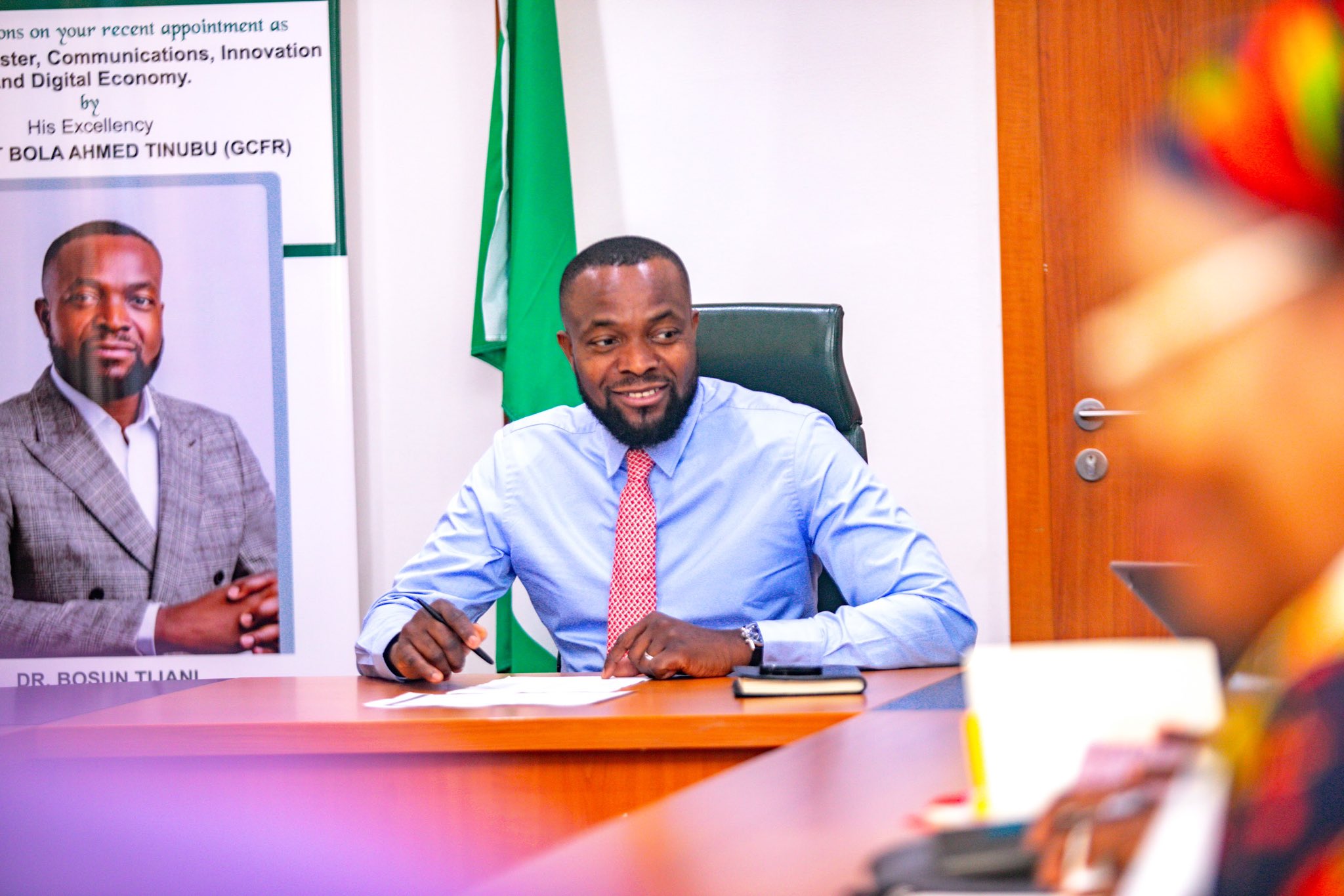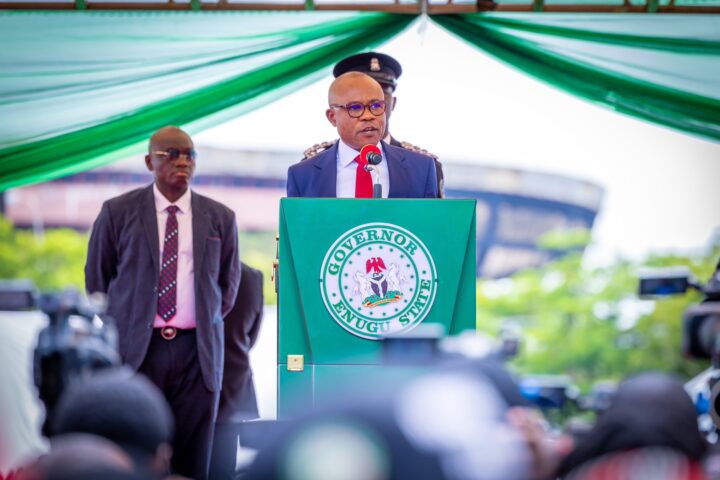BY VITALIS OBIDIAGHAA
Speaking recently at the opening of a two-day retreat for the leadership of the 10th National Assembly in Ikot Ekpene, Akwa Ibom state, Vice President Kashim Shettima made a profound statement which succinctly explains the central mission of the Nigerian nation. In part of the widely publicised speech, the vice president stated that: “If Nigeria fails, the black man has failed,”— reiterating Nigeria’s leadership responsibility to Africa and the entire black race. Although Shettima was addressing members of the national assembly, his thought-provoking statement serves both as an inspiration and a call to action to all Nigerians, irrespective of tribe, religion or political affiliation.
When one rises above the superficial type of social analysis and thinks deeply about the above statement, one realises that the flip side of the same truth is that if Nigeria succeeds, the black man has succeeded. For those who understand the manifest destiny of the Nigerian nation and the leadership responsibility that accompanies that destiny, Shettima’s clarion call couldn’t have come at a better time. At such a time as this when majority of our citizens are becoming oblivious of Nigeria’s leadership responsibility to Africa and the black race, it becomes very important that we bring to the consciousness of our citizens, the responsibility we owe to Africa and the black race, while reaffirming our position as the undisputed leader of the African continent.
Informed minds know that it is an incontrovertible fact that providence has assigned the Nigerian nation the dual responsibilities of being the hope of Africa and the pride of the black race but fate has, through chequered historical evolution, denied majority of Nigerian citizens the knowledge of this sacred mission. Thus, we find a broad section of our citizens, from the elite to the masses, striving to pilot the affairs of a nation whose manifest destiny they do not know. But even though the manifest destiny of the Nigerian nation is not yet known to a majority of our citizens it is, nonetheless, a definite fact. It is a fact that is founded on the understanding that the cause of Nigeria is indeed the cause of Africa and by extension, the cause of the entire black race. This is particularly true when one considers the positioning of Nigeria in African and global context.
Advertisement
To begin with, Nigeria has the rare privilege of being, not just the most populous black nation in the world, we are amongst the few, if not the only black nation in the world, that has not been negatively influenced by the myth of white supremacy— a psychological affront that undermines the growth of most African nations. A careful observation of the psyche of the Nigerian citizen reveals the fact that he has a distinguishing feature that sets him apart from other black Africans. The major part of that distinguishing feature is the indomitable Nigerian spirit that never bows to the myth of white supremacy. The manifestation of this spirit is not only seen in the resilience nature of Nigerians, it is also visible in the audacity of faith which makes Nigerians to always believe that the future holds a better promise than the past — an audacity of faith that many foreign observers have come to define as “believing in hope, even against hope”.
But our hope is never superficial. It is founded on our understanding of the spiritual attributes of man; the capacity to believe in unseen realities. We believe –not because we are not aware of our current challenges– because we know that hope is action, and faith is the greatest creative force in the world. It is this faith that has kept us as one united nation, irrespective of our diversity and historical challenges. It is this faith in ourselves that has distinguished us from many other black Africans, even from the beginning of our nationhood.
Speaking during his inaugural address as the governor general of Nigeria, Nnamdi Azikiwe opined that: “The challenge of Nigeria as a free state in central Africa is the need to revive the stature of man in Africa and restore the dignity of black man in the world. Nigerians believe passionately in fundamental human rights. We regard all races of the human family as equal. Under no circumstance shall we accept the idea that the black race is inferior to any other race”. This statement encapsulates the central mission of the Nigerian nation and that was what Shettima was striving to bring to our national consciousness through his speech in Akwa Ibom state.
Advertisement
Shettima is not just a lone voice, crying in the wilderness, he was saying the same truth Nelson Mandela once stated when he observed that “the world will never respect Africa until Nigeria earns that respect. The black people of the world are looking up to Nigeria to become a symbol of pride and confidence”. He admonished us to ensure that “every Nigerian citizen is made to understand this great responsibility”. That is —exactly— what Shettima is striving to do.
To better appreciate the significance of Shettima’s words, one has to consider the fact that a nation may be endowed with extra-ordinary individual great minds but such a nation may not make any significant progress, both on the local and the global stage, until there is unity of purpose, anchored on a shared national mission which is clearly communicated to all the citizenry, to the point that it becomes an ideological movement within the nation. It is at that point when the nation achieves unity of purpose that she begins to enjoy the benefit of maximum human and material resources utilisation, which is the foundation of the greatness of nations.
As a concerned public intellectual, I have always advocated that the easiest way for us to achieve national cohesion is to have a clearly defined and effectively communicated central mission, which can serve as an ideological foundation for the maximisation of the vast potentials of the Nigerian nation. That defined national purpose will help to address the challenge of extreme individualism which we now see within our nation and make us a people, united in purpose. It is at that point that the sum of our national output will begin to reflect our great individual capacities. The challenge of leadership at this stage of our national evolution is, therefore, to help the Nigerian citizen, not only to understand Nigeria’s leadership responsibility to Africa and the black race, but the role each citizen must play towards the fulfilment of that promise.
Frantz Fanon reminds us that “each generation must, out of relative obscurity, discover its mission, fulfil it or betray it”. Shettima’s clarion call was simply an attempt to bring to our national consciousness, the central mission of the Nigerian nation. It is, therefore, our collective responsibility to heed to his call towards the fulfilment of our nation’s manifest destiny. He deserves our commendation for his courage to tell us the truth.
Advertisement
Obidiaghaa is the author of Nigeria’s Manifest Destiny. He can be reached via 08157593757.
Views expressed by contributors are strictly personal and not of TheCable.
Add a comment

